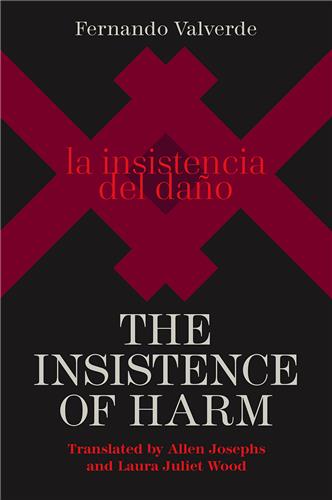Trash and Limits in Latin American Culture
Micah McKay
Hardcover: $85.00
Paper: $35.00
Paper: $35.00
The ecological, social, and aesthetic functions of garbage in literature and film from Argentina to Mexico
“In this kaleidoscopic book, McKay follows trash as it materializes the seen and unseen excesses of modernity in Latin America. All roads lead to trash, and trash in turn leads us to reconsider how life is wasted, but also to recognize how communities nevertheless emerge around the dump.”—Carolyn Fornoff, author of Subjunctive Aesthetics: Mexican Cultural Production in the Era of Climate Change
“Harnessing biopolitics, trash studies, and ecocritical theory, this book puts forward a series of interconnected readings of recent cultural production emerging from the Americas and argues for the crucial importance of waste to our understanding of social determinations of meaning, beauty, and value.”—Samuel Amago, author of Basura: Cultures of Waste in Contemporary Spain
“A sweeping study of the place(s) of trash in cultural texts by authors, filmmakers, and other actors in the region from the 1950s to the 2010s. McKay enters these places to probe the limits of such notions as human, community, waste management, and environmental activism. In the process, he vividly collects and pieces together the tales that trash tells.”—Odile Cisneros, University of Alberta
This book looks at the role of waste in Latin American cultural texts from the twentieth and twenty-first centuries and makes the case for foregrounding trash as an object of analysis in literary and cultural studies in Spanish America and Brazil. By considering how writers and filmmakers engage with the theme, Micah McKay argues that garbage illuminates key limits related to the region’s experience with contemporary capitalism.
Recognizing trash as an important social reality, McKay traces its appearance in a diverse range of products: novels and documentary films with dumps as settings, short stories whose main characters are garbage pickers, and works that portray writing as a process of piecing together found materials. McKay argues that waste and the problems it poses are key to understanding marginalization, political struggle, and the production of aesthetic value.
Drawing on insights from material ecocriticism, discard studies, and biopolitics, McKay theorizes that trash opens a space of reflection on what it means to be human, the possibilities for building community amid catastrophe, gendered notions of labor and care, and the pitfalls of neoliberal environmentalism. McKay shows how trash in literature and film helps readers and viewers contemplate the limits of how we inhabit the planet.
Micah McKay, assistant professor of Spanish at the University of Alabama, is coeditor of Environmental Cultural Studies Through Time: The Luso-Hispanic World.
Publication of this work made possible by a Sustaining the Humanities through the American Rescue Plan grant from the National Endowment for the Humanities.
- Sample Chapter(s):
- Excerpt
- Table of Contents
There are currently no reviews available












